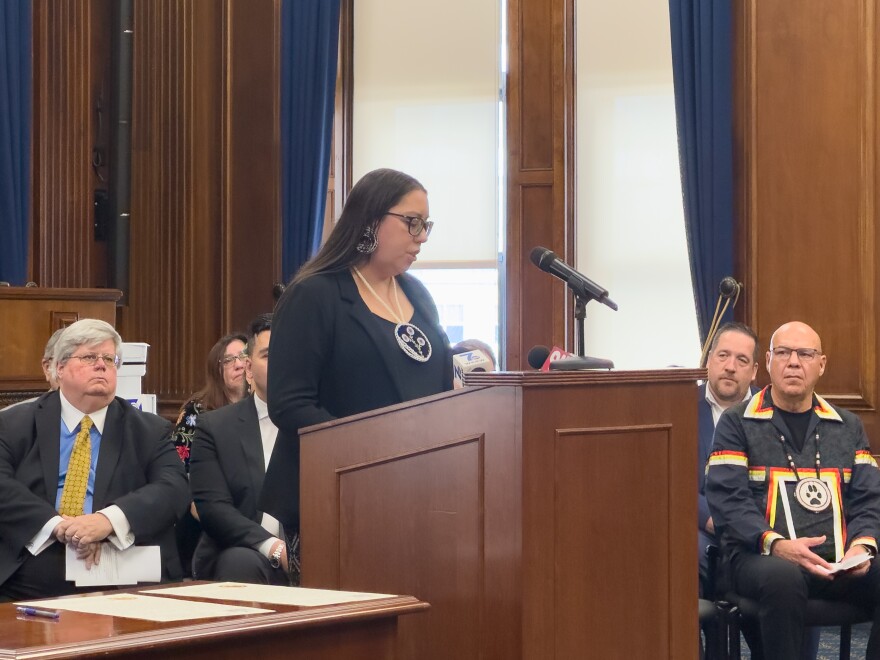On Friday, Ely Samuel Parker became the first Native American to be posthumously admitted to the New York State Bar.
Parker was a recognized Seneca leader who advocated for his community's survival, a significant military secretary to General Ulysses S. Grant in the Civil War, and the first Native American Commissioner of the Bureau of Indian Affairs.
According to the Seneca Nation, Parker is the first Native American to be posthumously admitted to the bar in the United States, and one of just a few attorneys of color to be recognized in this way.
"He was ready. He was prepared, and he was brilliant," Melissa Parker Leonard, a descendent of Ely Parker, said at the admittance ceremony. "But in 1847 he was denied admission to the bar, not because he lacked ability, but because he was native and not considered a United States citizen."
Parker was denied admission to the New York State bar, despite meeting all the requirements and training to become a lawyer, simply because Native Americans were not recognized as citizens at the time.

Parker Leonard did a significant amount of research to support the application for Parker to the bar. She shared that through reading letters he wrote and received, now kept at the Buffalo History Museum, she learned a lot about his determination to advocate for his people.
"These were brothers and sister writing to one another nearly two centuries ago, in the midst of immense fear and anxiety as land companies attempted to remove the Seneca people from their homelands. Again and again, their letters contained a powerful truth: to lose the land was to cease to exist. For our ancestors, land was not a possession. The land does not belong to us. We belong to the land. It holds our burials, our medicines, our stories and our future generations."
"They were fighting so that our family, our identity and our relationship to this land would endure," Parker Leonard said.
After being denied admittance to the bar, Parker went on to become a military general, working with General Grant, and ultimately drafting the final terms of surrender signed by Confederate General Robert E. Lee in 1865.
Parker was born and named Hasanoanda, which means "Leading Man," in 1828 on the Tonawanda Seneca Reservation. He later took the name Donehogawa, or "Open Door," after becoming chief of the Tonawanda in 1851. After his work with General Grant during the Civil War, Parker was appointed the first Native American Commissioner of the Bureau of Indian Affairs.
The later years of his life were difficult due to health issues he experienced and financial difficulties after the Panic of 1873. Parker died in 1895 in Connecticut. His remains were later moved to Forest Lawn Cemetery in Buffalo.
Parker has been admitted to the New York State bar, Appellate Division, Fourth Department, which covers Western and Central New York.


